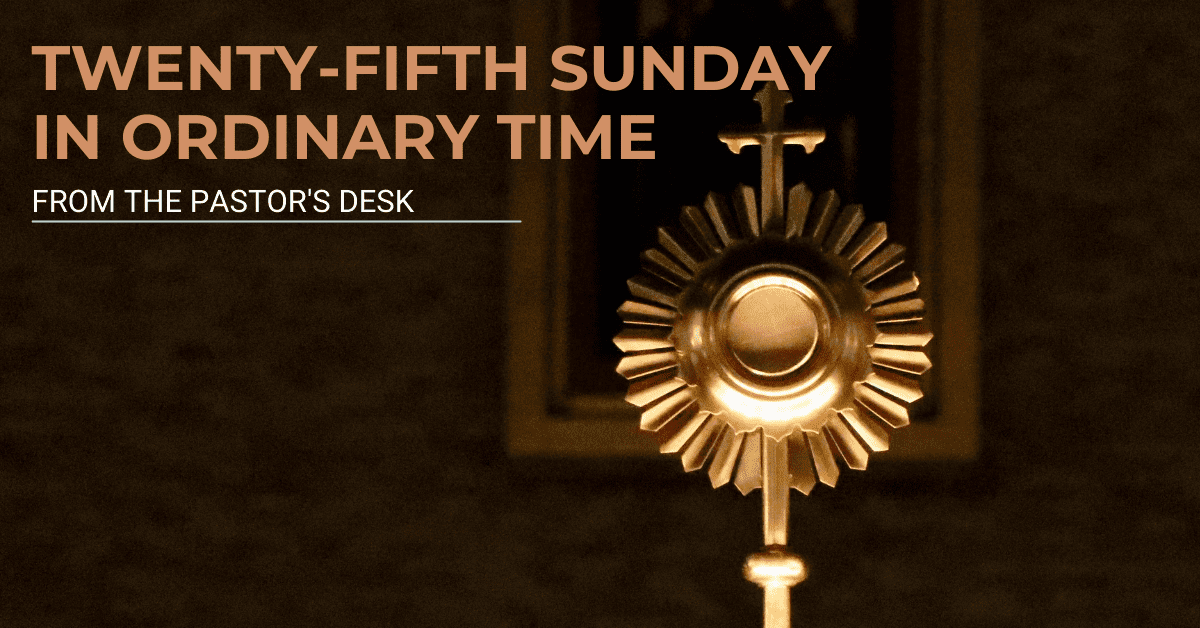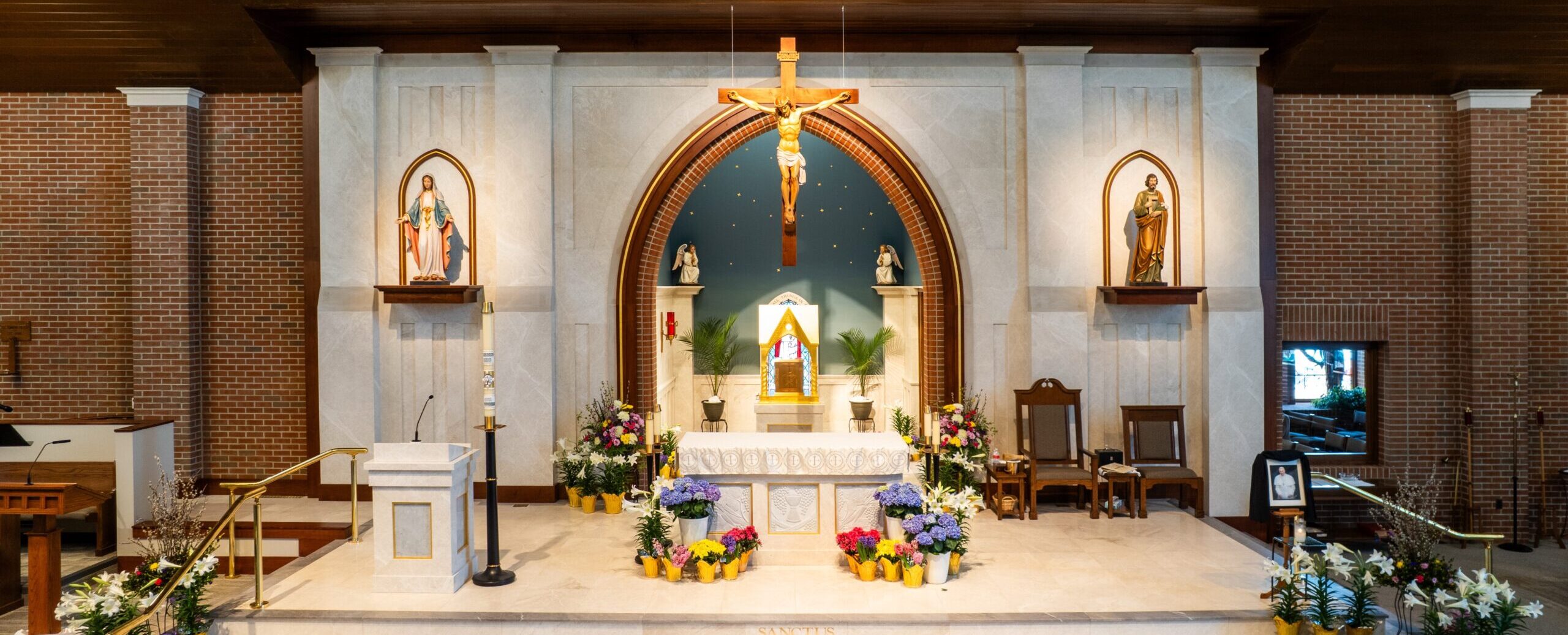Twenty-Fifth Sunday in Ordinary Time

Dear Brothers & Sisters in Christ,
Eucharistic Revival cannot happen without first understanding the magnitude of the gift. It is not something merely given in the past to the apostles, but the “Eucharist is the fruit of the re-presentation of the singular, historical offering of Christ to His Father on the Cross.” In other words, the Resurrection of Jesus Christ, a historical event, remains a past event that affects us, here in the present, having implications for our lives today. Jesus rose from the dead and is alive today!
There is no Resurrection without the Crucifixion. This may seem obvious, but it is an important point to see the Eucharist as the gift that it is. From The Mystery of the Eucharist, the Bishops remind us of the sacrificial nature of the Eucharist:
“At the Last Supper, celebrating the Passover, Jesus makes explicit that his impending death, freely embraced out of love, is sacrificial: While they were eating, Jesus took bread, said the blessing, broke it, and giving it to his disciples said, “Take and eat; this is my body.” Then he took a cup, gave thanks, and gave it to them, saying, “Drink from it, all of you, for this is my blood of the covenant, which will be shed on behalf of many for the forgiveness of sins.”
(Mt 26:27-28) In the words and gestures of the Last Supper, Jesus makes it clear that out of love for us he is freely offering his life for the forgiveness of our sins.” (13)
Many often ask, “Why is it so important to understand the Eucharist as sacrifice?” The bishops answer this question better than I ever could:
It is because all that Jesus did for the salvation of humanity is made present in the celebration of the Eucharist, including his sacrificial Death and Resurrection. Christ’s sacrifice of himself to the Father was efficacious and salvific because of the supreme love with which he shed his blood, the price of our salvation, and offered himself to the Father on our behalf (emphasis added, 14).
How does this have implications for us today? Unsurprising to most of you, I hope that a movie will help illustrate the point. At the end of the movie, Saving Private Ryan, an elderly Private Ryan stands at the graves of the men who sacrificed their lives for him to live. Private Ryan looks at his wife and asks hopefully, “Am I a good man? Have I lived a good life?” He wanted to feel assured that his life was a litany of gratitude of the sacrifice made for him to have his life. Every day he had was an ongoing reception of this great gift and sacrifice offered for him.
Friends, every day, every Sunday, and every time we receive the Holy Eucharist and give God thanks, we are doing something similar to Private Ryan. We are thanking Jesus Christ for the greatest sacrifice any one has ever done for humanity. He died, so that we might live. Jesus loved his own and he loved them to the end. (Jn 13:1) The Eucharist is a memorial, but it’s alive, it’s living. The word used to explain this reality is anamnesis. The Eucharist is not a static memorial like the Lincoln Memorial, it’s a living memorial of such a precious gift, Christ’s sacrifice for us.
The paschal event should change the way we live our lives. Perhaps, this message from Saint Paul sums it up best:
For the love of Christ impels us, once we have come to the conviction that one died for all; therefore, all have died. He indeed died for all, so that those who live might no longer live for themselves but for him who for their sake died and was raised (2 Cor 5:14-15).

